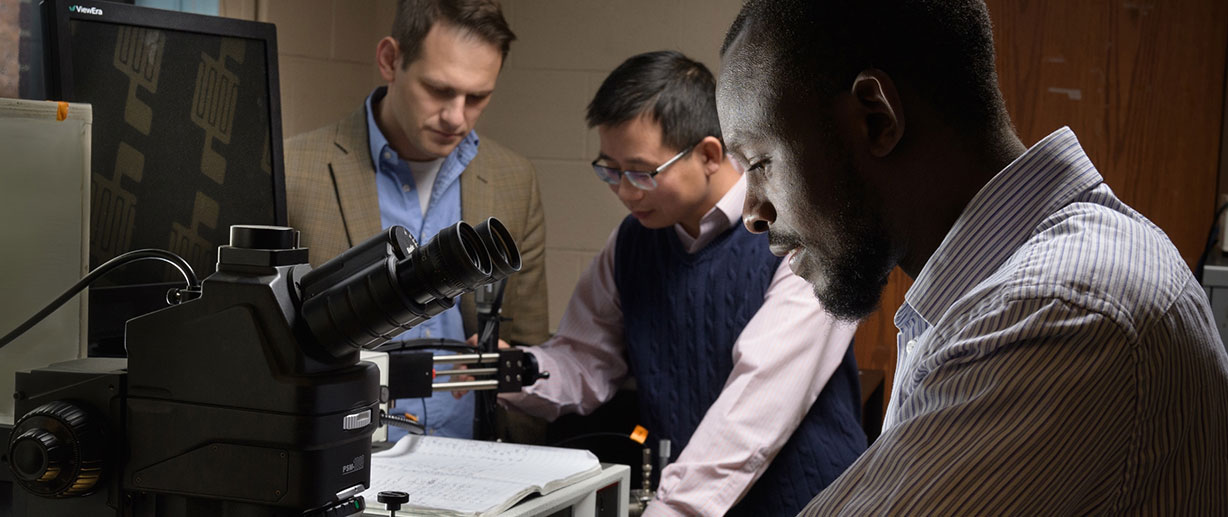Aristide Gumyusenge’s journey from a small farm in Rwanda to graduate researcher at Purdue University passed through Wofford, and the 2015 graduate will never forget that.
Gumyusenge and his research team at Purdue recently published a break-through scientific discovery — polymers that can sustain extreme heat — in Science Magazine. These polymers can withstand heat higher than 220 Celsius, much higher than most electronics materials can function.
With the invention, companies such as Samsung will be able to prevent substantial losses from overheating in circuits, something the company has struggled with in the past. Gumyusenge and his fellow researchers also believe the discovery will allow the fabrication of lightweight electronics usable in aircraft, car engines and other applications that require extreme thermal stability.
“Being part of groundbreaking research … it would be an honor to be able to bring it to Rwanda,” says Gumyusenge, who attended Wofford as a Rwanda Presidential Scholar, a program that allowed Rwandan high school students to attend colleges and universities in the United States. “Rwanda relies heavily on natural gas extraction out of Lake Kivu, and this requires high-temperature electronics. If polymer-based electronic devices are to become commercialized, they would be much cheaper than the current technologies, and Rwanda definitely will benefit from it. More importantly, Rwanda is currently working on launching its own satellite. This is an area that needs cheaper, lightweight and heat-resistant electronics. Polymers can do this job.”
Gumyusenge credits his experiences at Wofford with helping his path to Purdue and this research as well as plans to pursue a post-doctoral position at Stanford University as a researcher in materials engineering after he graduates in December from Purdue with his Ph.D.
“Wofford could be challenging academically, and Purdue is notorious for the same reasons,” he says. “So, the four years at Wofford definitely painted the picture of being able to balance heavy schedules with other activities.” That, Gumyusenge did — working in the Sandor Teszler Library at Wofford to help financially support his sister and brother, who were attending nursing school and civil engineering school, respectively. As a junior, he also did summer research at the Center of Sustainable Materials Chemistry in Oregon.
Dr. Charlie Bass, Dr. and Mrs. Larry Hearn McCalla Professor of Chemistry, and Dr. Ted Monroe, professor emeritus of mathematics, were both major influences on Gumyusenge.
“Professor Monroe made math doable as he would joke with us a lot. Professor
Bass made organic chemistry tolerable, and I liked the chemistry department as a whole. They always found ways to shine some light, even on long afternoon lab sessions. I have to blame them for becoming a chemist myself,” he says.
By Laura H. Corbin
